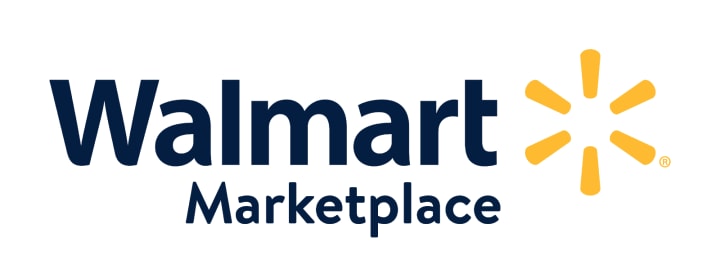Why You Should Expand Into Different E-Commerce Marketplaces
Consider the many benefits to expanding your market into a variety of popular e-commerce marketplaces, including Walmart, Etsy, eBay, and more while effectively scaling your e-commerce business.

In the 90s and early 2000s, Craigslist was one of the top e-commerce retailers on the global stage. Today, with over 4000 items sold per minute and over 2.5 million sellers, it’s safe to say that Amazon has commandeered that position.
Though, that’s not to say Amazon is the only e-commerce marketplace platform you should have your eye on. Especially given that there may be some inherent problems with solely selling on Amazon Marketplace as a third party seller… but more on that later.
Consider the many benefits to expanding your market into a variety of popular e-commerce marketplaces, including Walmart, Etsy, eBay, and more while effectively scaling your e-commerce business.
Amazon Marketplace

Pros
Amazon is one of the most used e-commerce marketplaces in the world and can help you expand your reach to international regions like the UK, Europe, Canada, Latin America, parts of Asia and Australia. Amazon also has a reputation for lightning quick delivery and customer service—and it shows. It seems obvious, but third party sellers are drawn to Amazon above other e-commerce marketplaces because that’s simply where the buyers are. Over 150 million people use Amazon everyday for everything from books and gifts, to fulfilling basic needs and groceries. It’s a great platform to use if you’re looking to reach a new audience and build up brand trustworthiness. Third-party companies can legitimately enjoy using it as a strong platform, tallying sales from trusting consumers who already want to buy from a familiar and reputable site.
Cons
On the other side of the same coin, Amazon can sometimes have a reputation for making life difficult for third party retailers. Amazon has rapidly risen to becoming a near monopoly—nobody can hope to list, pack, sell, or ship the way they can at the same price. CEO Jeff Bezos boasts the exceptional performance of third party sellers and insists that Amazon Marketplace still supports third party sellers. However, there are many nuances to the platform that can make it confusing and difficult to set up properly. Seller’s are thrown into a new world with guidelines and rules to follow that it can be hard to keep up. They must take the time to learn about listings being written properly, understanding the advantage of advertising, and the use of other features the marketplace has to offer. This can be extremely overwhelming for sellers to keep up with.
Walmart Marketplace

Pros
Similarly, many people turn to one of the world's other massive e-commerce platforms: Walmart. While Amazon may still rule the web, Walmart’s stores bring in 256 million shoppers every week with their low prices. Because of this success, they’ve also succeeded among other e-commerce marketplaces. Walmart Marketplace, like many other online retailers (like Target or Barnes & Noble) has discovered other ways to keep you on their site when you’re looking for something you can’t buy in-store. By 2018, they even overtook Apple.com as the third largest online retailer.
Cons
While they do offer a new audience of potential customers, that doesn’t mean its platform is without flaws. In order to sell to Walmart’s best-deal-possible audience, you may have to resort to lower prices than you’d want if you hope to compete with other sellers. There’s room for similarities, but if you’re not offering the best price around for your product, yours might get buried under similar ones on Walmart Marketplace. There are also less features and options to make your product stand out from the competition making it more difficult to rank your products within the Walmart search algorithm.
Creating Your Own Website

Pros
Although it’s not technically deemed a “marketplace”, the benefit of having your own website is the added balance between all of the other platforms you choose to list your products on. Having your own site can lend credibility and authority to you and your work—giving you space to talk about who you are and why you do what you do. Platforms like Shopify make creating your own website and store easy. Once you create a unique domain you can begin selling on your own directly to customers on your site.
Plus, with your own site, you don’t have to abide by the rules that giant e-commerce platforms have put in place. For example, your product descriptions can be as long or as short as you want without suffering “best practices” for listings. Running e-commerce through your own website diversifies streams of revenue while encouraging you to hone in on your product, building your customer list, and your own business’s fulfillment methods. Given some of the obstacles Amazon sellers ran into in the onset of COVID-19, having a little more control over your supply chain is a responsible measure to mitigate risk and assure dependability to your growing consumer base.
Cons
When you create your own website, it's easy to get complacent and think that your customers will immediately flock to you the second it's published. Unfortunately, this is not the case. You still have to market and invest time to ensure you are utilizing the best SEO practices to be found online. On top of that, you’ll want to make sure your website always looks as professional as possible. Even if you use a free website builder, you must make sure you don’t wind up with a site that looks overly basic and that it speaks to your brand effectively.
Etsy

Pros
Etsy is still a great choice for small, crafty businesses. From jewelry to face masks, people go to Etsy for the customizable, kitsch and unique handmade items that they can’t find elsewhere. Creating an Etsy store takes very little time and all-in-all may be better than attempting to make your own website (depending on what you’re selling). Etsy already has an established audience which makes it that much more likely for your products to be viewed by people who are already in the mood to shop.
Cons
Admittedly, as far as marketplaces go, they have fairly strict guidelines about what can and cannot be sold on their site. Like many e-commerce sites, it can also be quite competitive. This means that while the audience definitely exists, it may take time to get your store seen above seasoned Etsy pros that have hundreds (or thousands) of 5 star reviews. Though, to be fair, most e-commerce sites work that way too.
eBay

Pros
When it comes to marketplaces, eBay is still the best bidding site around! Whether you’re hoping to sell rare or unique items, or get rid of something fast, eBay can be a strong option for your e-commerce businesses. While it’s known for being a location for resellers, you can pay eBay to have a brand by getting an eBay Stores subscription starting at $4.99 a month to help drive traffic to your page.
Cons
As the seller, you have to pay for shipping and, if you typically accept payment through PayPal, you have to deal with PayPal fees. On top of that, there are some seller horror stories of e-commerce retailers who have had their products stolen from porches or impossible clients. Some sellers in instances like these felt like eBay had not exactly stood up for them (or helped make it easier to rectify mistakes).
Each individual online retailer may find more luck with one e-commerce platform over another. What it really comes down to is the stage of growth your company is in, what your product or service is, and your strategy for putting your product or service in front of the right customers. For example, people selling certain handmade items may do better on Etsy, while book sellers tend to do well on Amazon, and so on.
Though, by expanding your e-commerce marketplace presence, you’re giving your company room to circle in on where to concentrate your efforts and where your business is most likely to thrive while being opened to new audiences.
Consider the potential for short term campaigns on these and other sites and evaluate your success. While you never know where you’ll find your brand’s ideal e-commerce marketplace while diversifying, you will at the very least be exposing your brand to these new audiences.
About the Creator
Seller's Choice
Seller’s Choice is a digital marketing solution provider dedicated to the interests, growth, and profitability of e-commerce brands.






Comments
There are no comments for this story
Be the first to respond and start the conversation.